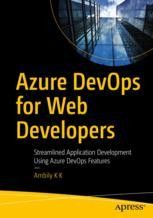LINQ is the new query language used in .Net to query any kind of data source. LINQ can be used to query data from XML, SQL Server, Excel, etc.
LINQ operation relies on Type Inferencing, Type Initializers, Anonymous Types, Extension Methods, Lambda Expressions and Query Expressions.
Type Inferencing
Type inferencing means inferring the correct type at compile time. LINQ uses the keyword ‘var’ to declare the type of a query result. At compile time, the type is infers using the initialization.
‘var’ keyword can be used only for Local variables, which are initialized with a not null value.
Following are few examples, where ‘var’ is used
var c = new Customer("Bob", "Smith", 1234); var c = default(string);
Following are few examples, where ‘var’ is used wrongly.
var c; var c = null; public var DoSomething(int x){} public void DoSomething(var x){}
Type Initializers
LINQ uses the object initializer feature of .Net. Object Initializer is initialize an object in object creation statement itself. It reduces the steps required to create an object and sets the designated properties accordingly.
The following Object initializer is
Invoice i = new Invoice () { CustomerId = 123, Name = "Test” };
Same as
Invoice invoice = new Invoice(); invoice.CustomerId = 123; invoice.Name = "Test";
Anonymous Types
We can use the object initializers without any type definition. Also, we can define a result as anonymous.
Few examples, where we used the anonymous types are
var i2 = new Invoice { CustomerId = 123, Name = "SmithCo" }; var i3 = new {CustomerId = 123, Name = "SmithCo" }; var i4 = new {123, "SmithCo"};
This generates a class corresponding to the result. LINQ uses Anonymous types frequently.
Extension Methods
Extension methods are methods used to extend the functionality of an existing type. This method will add new functionality to an existing type without defining any derived class. Extensions methods can access any public members of Extended Types.
Extension methods must be a public static method hosted inside a static class. Use this keyword before parameter of extended type.
Anonymous Method
C# 2.0 introduced anonymous methods. With delegates, we can inject code to another method.
An example of an anonymous method is
delegate void Display(string s); public class Anonymous { static void Main() { Display d = delegate(string j) { System.Console.WriteLine(j); }; d("Call delegate using the anonymous method"); } }
Lambda Expressions
Lambda expressions are based on anonymous methods. Lambda expressions uses the functional language syntax and more concise. It is more compact and type-safe way of defining a statement. Lambda expressions pass functions as arguments for later evaluation.
Few examples of Lambda expression are
Func<int, int> addOne = n => n + 1; Console.WriteLine(addOne(5)); // Print 6 Expression<Func<int, int>> addOneExpression = n => n + 1; var addOneFunc = addOneExpression.Compile(); Console.WriteLine(addOneFunc(5)); // Print 6
Query Expressions
Query expressions define a new query language with SQL like syntax, which will get compiled to C# using extension methods.
Few examples of query expression are
from c in container.Categories select new { Name = c.CategoryName, c.Products, ProductCount = c.Products.Count }) .OrderBy(c => c.Name).ToList().ForEach(c => Console.WriteLine("{0, -14} has {1} products.", c.Name, c.ProductCount)
from c in context.Categories select new { Name = c.CategoryName, c.Products, ProductCount = c.Products.Count };


